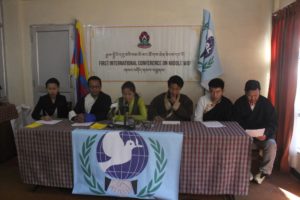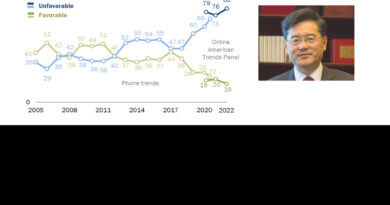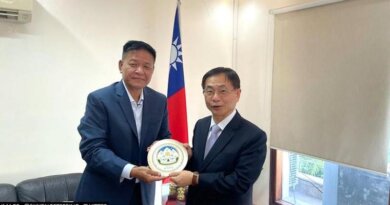First International Conference on ‘Middle Way’ Policy to be held in Dharamsala
By Lobsang Tenchoe
DHARAMSALA, JAN 2: Tibetan People’s Movement for ‘Middle Way’ and Youth for Umaylam-Minnesota will jointly hold the inaugural International Conference on ‘Middle Way’ policy from May 26th – 31st in Dharamsala, the organizing committee announced earlier today at a press conference held at the Club House in Mcleod Ganj, Dharamsala.
 “The Tibetan people have placed faith in His Holiness the Dalai Lama’s thought and have provided unflinching support to it. The Tibetan parliament-in-Exile also unanimously voted in support of this proposal taking into consideration the expectations of Tibetans both inside and outside of Tibet,” the organisers stated in a release.
“The Tibetan people have placed faith in His Holiness the Dalai Lama’s thought and have provided unflinching support to it. The Tibetan parliament-in-Exile also unanimously voted in support of this proposal taking into consideration the expectations of Tibetans both inside and outside of Tibet,” the organisers stated in a release.
“China should also have faith in the ‘Middle Way’ policy if mainland China is to genuinely maintain integrity, stability and wants to remain as a country of great vision and power in the global world,” the organisers said.
The conference is supported by many like-minded people across US, Europe, Taiwan, Nepal and India as well as some NGOs upholding the middle way approach, the organisers noted.
The organisers claimed that in order to secure more confidence from the Tibetan public and bolster support from the global community, they decided to organize the first ever International Middle Way Conference in Dharamsala.
“It is of grave concern to discover that a large number of Tibetan people, including young Tibetans still haven’t understood the middle way as the undeniably and unsurpassed policy proposed by His Holiness the Dalai Lama for the solidarity in times of both happiness and sorrow, unity or integrity and resolution of Sino-Tibet issue. Therefore, in order to secure more confidence from public and bolster support from the global community, we decided to organize the first ever International Middle Way Conference in Dharamsala,” the organisers stated.
The Middle Way Approach was proposed by His Holiness as mutually beneficial approach for both the Chinese and the Tibetans to resolve the issue of Tibet. The policy does not seek independence for Tibet from China, but a genuine autonomy within the framework of the People’s Republic of China.


